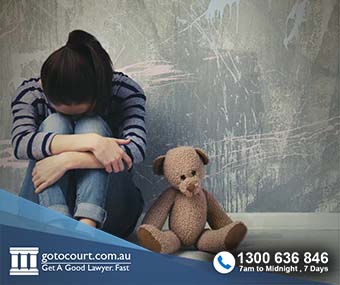Mental Health and Parenting Orders
A parent’s mental health and the impact of any mental health issues on their capacity to care for the children are common concerns arising after separation. If a parent’s mental health issues were present during the relationship there may be heightened concerns for the children’s welfare in that parent’s care. Claims that a parent has a mental health condition are common during parenting proceedings. Any such allegations must be supported by appropriate and objective evidence.
Raising mental health issues
If a party wants the court to consider the other party’s mental health as a factor in determining parenting orders, they must present substantial and objective evidence. One parent’s observations of the other parent generally cannot be relied on.
People suffering from mental illnesses are often subjected to negative stereotypes and prejudices. It is important to ensure that these stereotypes are not perpetuated in the legal system. As with any allegations that are made against parties in a family law matter, it is important to gather evidence before making these allegations.
The evidence should mainly go towards the following:
- That the parent has a mental health condition;
- What type of mental health condition they have;
- The symptoms of the mental health condition;
- How the symptoms of the mental health condition impact the children;
- How the symptoms of the mental health condition affect the parent’s parenting capacity;
- Whether the parent has taken any steps to manage their mental health through treatment or medication and whether that treatment is effective.
The existence of a diagnosis alone is not necessarily relevant to the determination of parenting orders that are in the best interest of the children. It is important to demonstrate how and to what extent the mental health condition negatively impacts the children.
Effective management of mental health
The symptoms of mental health conditions can include aggression, anger, anxiety, self-harm and often are linked to substance abuse. However, these symptoms can be managed by regular attendance on a counsellor or psychologist as well as with medication and other measures.
Where a parent has a mental health condition and manages it effectively, it is unlikely that the condition will affect the Parenting Orders determined by a court.
I have a mental health condition. How do I demonstrate that I am a capable parent?
If you are a parent who has a mental health condition, it is important to focus on the steps you have taken to manage your condition. This may include visiting a GP, devising a mental health plan, having regular sessions with a psychologist or therapist and taking prescription medication.
Members of your medical team may be able to provide a letter or affidavit to confirm the length of time that they have been seeing you, your diagnosis, their observations as to how you have been responding to treatment and their assessment as to whether there are any issues of particular concern.
In family law proceedings, an independent expert is sometimes appointed to consult with both parents and also the children (if appropriate) and prepare a report on issues such as:
- the relationship between the children and each parent;
- the children’s wishes;
- the parents’ circumstances;
- whether either parent has a mental health condition or any other issues and whether these issues are likely to have an effect on their parenting capacity.
It is important that the expert consults with both parents as this ensures that the information the expert is receiving is not one-sided.
Children’s best interests
The court’s paramount consideration in parenting proceedings is the best interests of the children. Consideration is given to maintaining the children’s relationship with both parents and protecting the children from potential harm. There is no legal presumption that when a parent has a mental health condition they do not have capacity to parent their children.
Under section 60CC of the Family Law Act, the court may take into account, “any other fact or circumstance that the Court thinks is relevant” as well as “the capacity of each of the child’s parents…to provide for the needs of the child”. These provisions allow the court to take into account a parent’s mental health condition to the extent that it impacts what is in the children’s best interests.
Where the court has concerns about a parent’s mental health condition, it may make Orders requiring the parent to comply with mental health treatment as recommended by their psychologist or to abstain from consuming alcohol or drugs prior to having contact with the children.
What if there are negative impacts on the children?
It is possible that after considering the evidence, the court may order that a parent have limited or no contact with the children.
It is also possible that certain measures would allow the children to still maintain contact with the parent but in a controlled and safe environment. This can occur when orders are made for supervised contact.
When supervised contact is ordered, a supervisor is present to observe the visit and ensure that if the child is at risk of unacceptable harm, that the visit is either not allowed to commence or terminated at the appropriate time.
This can assist with the children maintaining contact with the parent whilst the parent obtains appropriate treatment for their mental health condition or finds measures to manage the symptoms such that they do not affect their parenting capacity.
If you require legal advice or representation in a parenting matter or in any other legal matter, please contact Go To Court Lawyers.








